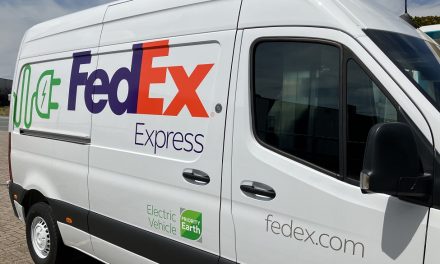
Union calls on UK consumer watchdog to monitor Royal Mail’s rivals
Britain’s largest postal union has called on the national consumer watchdog, Consumer Futures, to monitor the delivery standards of Royal Mail’s competitors. The Communication Workers Union said today that rivals like TNT Post UK were threatening the UK’s universal postal service by “cherry picking” the most profitable routes for delivery.
CWU general secretary Billy Hayes accused the company of providing a “substandard” service, alluding to TNT Post’s three-day-a-week delivery schedule compared to Royal Mail’s six-day-a-week requirements.
The union was calling for scrutiny from Consumer Futures ahead of next month’s merger between the watchdog and the Citizens Advice agencies in England, Scotland and Wales, and the General Consumer Council for Northern Ireland.
The CWU, which represents more than 115,000 staff in Royal Mail, was responding to the Consumer Futures draft work plan consultation.
Competition between Royal Mail and TNT Post UK in the last mile of delivery has been growing since April 2012, when TNT Post first started doorstep delivery services in West London. TNT Post has since expanded to parts of Central London, South West London, North West London and Manchester, providing the first serious alternative to Royal Mail in the last stage of postal delivery in these areas.
The CWU said it wanted to see Consumer Focus helping to protect the universal service obligation.
Hayes said: “Consumer Futures should use their position to monitor standards across the postal industry to ensure that customers are not being short-changed. As it currently stands, competitors can cherry-pick the most profitable areas for delivery and are effectively putting the universal service obligation at risk for rural communities.”
Post Office
The CWU also called on the national consumer watchdog to take a role voicing consumer interests in the transformation of Post Office Ltd.
The union called for a strong consumer voice against post office closures, and to help set the policy agenda for postal issues putting the interests of consumers and small businesses ahead of larger stakeholders.
“The transformation of the Post Office network also calls into question how Consumer Futures will position itself on this issue in the future as it has expressed no opposition to proposals to franchise a further 70 branches within the year. This is despite its own research showing deterioration in customer service where post offices have been franchised to WH Smiths,” said Hayes.
“There has been huge public opposition to the closure and franchise of post offices across the UK and yet Consumer Futures has remained silent. We believe that the current Code of Practice for the Post Office should urgently be strengthened to ensure consumers get a genuine opportunity to influence proposals that would see their local post office closed.”
Consumer Futures
Consumer Futures states in its draft work plan that it intends to push for consumers to get best value and service in a declining postal market and growing parcel market.
The watchdog noted that with Royal Mail now privatised, it will seek good commercial rates of return and efficiencies across the business. But, it said consumers will expect more innovation with high standards and quality of service.
Consumers will want Royal Mail to trim its costs, but not let service standards decline, prices increase or competition be shut out, said the plan.
Last week saw Consumer Focus hitting out at Royal Mail’s price increase, which is set to take effect at the end of this month. It said the 3% rise in First Class and 5% rise in Second Class rates was a “very significant increase in the price of an essential service”.
Robert Hammond, Director of Postal Policy and Regulation at Consumer Futures, said: “Royal Mail’s last full year financial results showed an increase in revenue and operating costs. Their customers would expect them to be making real cuts in their costs as we are all having to face in our household budgets. Royal Mail needs to modernise, but customers are being asked to pick up the tab. In return, they will expect to see a far more efficient, effective and competitive service.”












